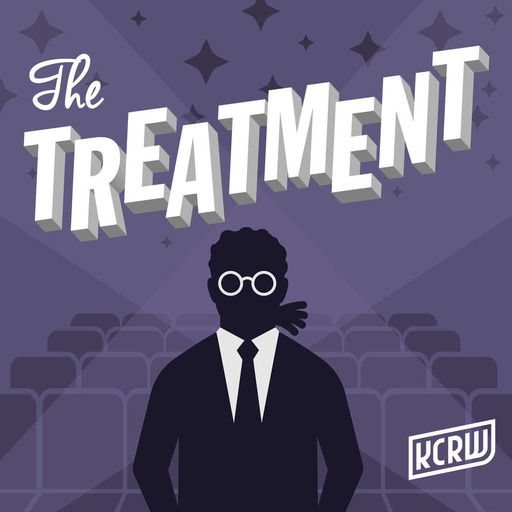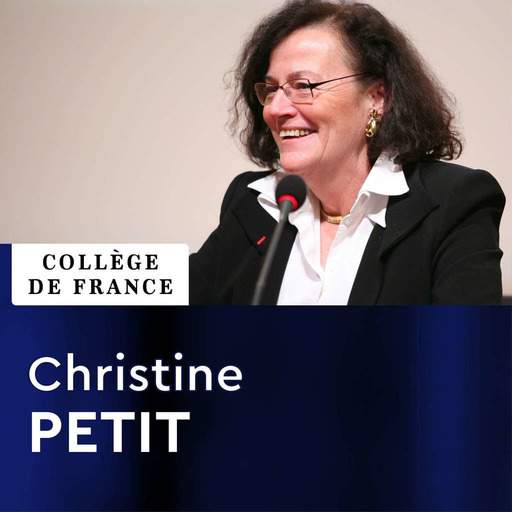
|
The TreatmentKCRW
The Treatment is a compelling listen to the vital conversations about the catalysts of creative inspiration. Following some of the most interesting, influential, and crossover creators in the world of entertainment, fashion, sports, and the arts, we hear from tastemakers who are the very fabric that forms popular culture.
|
|

|
Oh No, Ross and CarrieRoss and Carrie
Welcome to Oh No, Ross and Carrie, the show where we don’t just report on fringe science, spirituality, and claims of the paranormal, but take part ourselves. Follow us as we join religions, undergo alternative treatments, seek out the paranormal, and always find the humor in life's biggest mysteries. We show up - so you don’t have to.
|
|

|
Mind the Brain ! Neurosciences et cliniqueUNIL | Université de Lausanne
La remarquable avancée des neurosciences incarne sous des modalités inédites une question qui préoccupe depuis longtemps les disciplines les plus diverses : l’incarnation de l’esprit dans le cerveau.
La remarquable avancée des neurosciences soulève de passionnantes questions dans la perspective des sciences humaines. Elle incarne sous des modalités inédites une question qui préoccupe depuis longtemps les disciplines les plus diverses, comme la philosophie, la physiologie, la biologie, la psychologie, la psychiatrie et la médecine : l’incarnation de l’esprit dans le cerveau.
Mind the Brain 2009: À l’interface entre les procédures dites « dures » des neurosciences et l’art subtil de la clinique, le colloque « Mind the Brain ! » vise à promouvoir un dialogue ouvert et critique, en associant systématiquement à ces perspectives une approche de type sciences humaines ou sociales, autour des cinq thèmes Action, Cognition, Corporéité, Emotion, Identité.
Mind the Brain 2010: What do the new brain sciences do (or not) to/for their own disciplinary framework – both from a theoretical and practical standpoint ? How does the question of interdisciplinarity (or call it trans-, co-, etc. disciplinarity) emerge (or not) in relation to their own research or clinical practice ?
Mind the Brain 2011: These days we can observe a tendency towards modulating the psyche through actions on the brain, thereby reshaping identities. Psychotropic drugs are the favoured levers of these actions. Since the 1950s, neuroleptics, antidepressants, anxiolytics and psychostimulants are prescribed, sold and consumed in order to palliate mental suffering or treat mental illness. Does the success of these substances show the effectiveness of the treatment of recurrent and universal disorders or, conversely, does it reflect a specific design of psychological ailments and their treatment methods in contemporary society? In either case, the development of psychotropic drugs highlights the physiological and metabolic dimension of the modulation of the subject, as governed by a "chemical brain". For its fourth edition, the symposium Mind the Brain 2011 combines several perspectives to take a look at this chemical conception of the brain. As in previous editions, the symposium privileges work and reflections focusing on fields of tension or collaboration between basic research, the medical clinic and the human and social sciences.
|
|

|
A Little Princess by Frances Hodgson BurnettLoyal Books
Frances Hodgson Burnett’s book "A Little Princess" begins as seven year old Sara Crewe is dropped off at a boarding school by her rich father. She has grown up in India and has lived a very pampered life...
Frances Hodgson Burnett’s book "A Little Princess" begins as seven year old Sara Crewe is dropped off at a boarding school by her rich father. She has grown up in India and has lived a very pampered life. Even though she is rich, she is very friendly to everyone and the students all love her.
Unfortunately, the woman in charge of the school does not like Sara and when her father dies on a business trip, the head mistress is angry that she will not get the money she is owed for Sara’s care. She makes her live in the attic with the maid and to do chores to earn her keep at the school. Sara is mistreated, but still remains kind to others and helps anyone she can.
One day, Sara finds some money and buys some food from a bakery. When the baker sees her give away most of the food to a beggar girl, he believes Sara is a princess and invites the little beggar girl to live with his family. Sara continues to teach the smaller children and withstands the abuse from the adults around her.
When a strange man moves into the house next door, Sara becomes friends with his servant. He is impressed with how kind she is and is angered about her treatment at the school. He secretly sends her food to help her in some small way. Eventually, Sara discovers something very important about the man who is helping her.
A Little Princess is an amazing book that proves again that dreams can come true. It also shows that even when life is not going the way you would like it, you should still treat others the way you want to be treated. The end of the story is very satisfying, but readers will want to know more about this special little girl.
|
|

|
Rosalie Vanderpoel, the daughter of an American multimillionaire marries an impoverished English baronet and goes to live in England. She all but loses contact with her family in America. Years later her younger sister Bettina, beautiful, intelligent and extremely rich, goes to England to find what has happened to her sister. She finds Rosalie shabby and dispirited, cowed by her husband's ill treatment. Bettina sets about to rectify matters. She meets Lord Mount Dunstan, an impoverished earl, who lives nearby and they fall in love, but he cannot speak because it would look as if he were after her money... This is a romance but it is also about the rejuvenating effects of Americans and American money on a somewhat decadent English aristocracy. (Summary by Tabithat)
|
|

|
Génétique et physiologie cellulaire - Christine PetitCollège de France
Christine PETIT, Professeure de la chaire de « Génétique et physiologie cellulaire » La physiologie du système auditif, en particulier celle des premiers relais de traitement des signaux sonores, est assez bien comprise. En revanche, les mécanismes cellulaires et moléculaires qui la sous-tendent échappaient encore à toute caractérisation, au début des années 1990. L'approche génétique que le laboratoire du Professeure Christine Petit en proposa, a permis d'en initier le déchiffrage. Cette recherche adossée à l'identification des gènes dont l'atteinte est responsable de formes précoces de surdité chez l'homme, se développe sous la forme d'études multidisciplinaires. Elle éclaire les bases moléculaires de la formation et du fonctionnement de l'organe sensoriel auditif, notamment de ses cellules sensorielles ainsi que la pathogénie d'un vaste ensemble de surdités héréditaires du sujet jeune. Elle est aussi à l'origine de la découverte de nouvelles propriétés physiologiques du système auditif. L'objectif de la recherche s'est élargi depuis peu à l'élucidation de la pathogénie de la presbyacousie, surdité neurosensorielle liée à l'âge, et à une approche thérapeutique du syndrome Usher. Les cours de Christine PETIT portent sur le système auditif, son fonctionnement et ses dysfonctionnements. Ils s'adressent à un public intéressé par les neurosciences, la psychoacoustique, la musique et les troubles de la communication acoustique. Professor Christine PETIT is holding the chair of "Genetics and Cellular Physiology". Despite the amazing knowledge gathered on the physiology of the auditory system, especially at the peripheral level, the sensory organ and its innervation, the underlying molecular mechanisms, were escaping characterization. Then, on the grounds of the identification of the genes causative for the early onset forms of deafness in humans pioneered by Professor Christine Petit, her laboratory set off to decipher the cellular and molecular mechanisms of hearing, the way in which the auditory system develops and processes acoustic signals. Crossing the boundaries between medical and basic research fields, multidisciplinary analyses enable this laboratory to decipher the molecular physiology of the sensory organ (especially of auditory sensory cells), the pathogenesis of a large spectrum of inherited deafness forms and also to uncover new physiological properties of the auditory system. Today, its research encompasses additional objectives, such as in particular the treatment of Usher syndrome, using a gene-therapy approach of the retinal defects associated to congenital profound deafness and the elucidation of the pathogenesis of presbycusis, age-related sensorineural hearing loss, in the perspective of preventing and alleviating this very frequent communication disorder.
|
tous les 6 résultats

